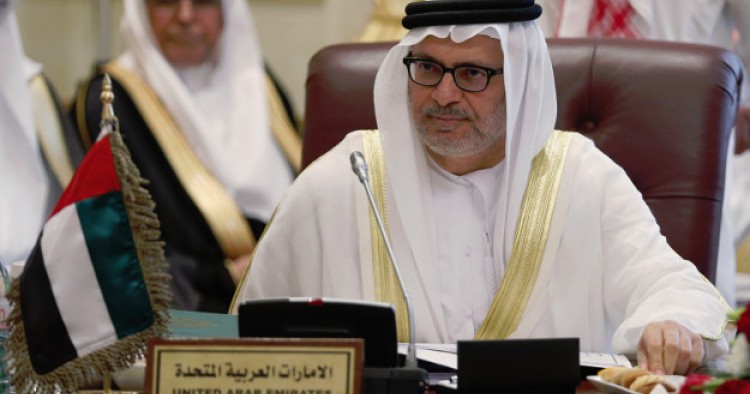Anwar Mohamad Gargash, the minister of state for foreign affairs of the United Arab Emirates, blamed Iran’s “interventionism” for the war and human suffering in Yemen. “Iran is directly arming and supporting the insurgents with increasingly sophisticated weapons, including ballistic missiles and armed drones,” he told the 34th regular session of the U.N. Human Rights Council on February 28. The Emirati official also noted that the Houthis have used Iranian missiles and rockets to target neighboring Saudi Arabia. “This Iranian interference prolongs and deepens the Yemen conflict, creating conditions that allow Al Qaeda in the Arabian Peninsula, and more recently, Daesh [Islamic State], more space to operate,” he added.
Gargash's remarks predictably provoked an angry reaction from Tehran. The Iranian Foreign Ministry refuted the allegations as “baseless” and accused the United Arab Emirates and the Saudi-led coalition of destabilizing Yemen.
Comment: Relations between the United Arab Emirates and Iran have noticeably deteriorated over Tehran’s support for Shiite militant groups in the Arab world, particularly for Houthi rebels in Yemen. Earlier this month, the U.A.E. summoned Iran’s charge d’affaires to protest “Iran’s illegal arming” of Shiite Yemeni rebels, including providing drones to target the Yemeni and Saudi-led coalition forces. The move came just days after the U.A.E. Air Force destroyed an "Iranian military drone" intended to target Yemeni government troops near the Red Sea. Major General Ahmed Saif Al Yafei, the deputy chief of general staff of Yemeni forces, said the drone had been smuggled in by the rebels from Iran, after government troops trapped them on the coast.
While Iranian leaders deny providing weapons to the Houthis, the U.S. military and its allies have confiscated several Iranian arms shipments destined for Yemen. In January, the Australian government released photographs that showed light anti-armor weapons seized near the Yemeni coast were manufactured in Iran. Analysts who surveyed the findings claimed that the weapons confiscated matched Iranian-made rocket-propelled grenade launchers used in Iraq and Ivory Coast in 2015. And last November, another report published by the U.K.-based Conflict Armament Research (CAR) indicated an arms “pipeline” originating from Iran extended to Yemen and Somalia.
Furthermore, U.S. officials in October reported on the seizure of five shipments of Iranian weapons destined for Yemen. Indeed, Iran’s former ambassador to Iraq, Hassan Kazemi-Qomi last year admitted that Tehran “assisted the region’s oppressed people, including in Yemen against the Saudi invaders” and argued that Iran’s national security would be compromised if Riyadh succeeded in Yemen.
The Middle East Institute (MEI) is an independent, non-partisan, non-for-profit, educational organization. It does not engage in advocacy and its scholars’ opinions are their own. MEI welcomes financial donations, but retains sole editorial control over its work and its publications reflect only the authors’ views. For a listing of MEI donors, please click here.













